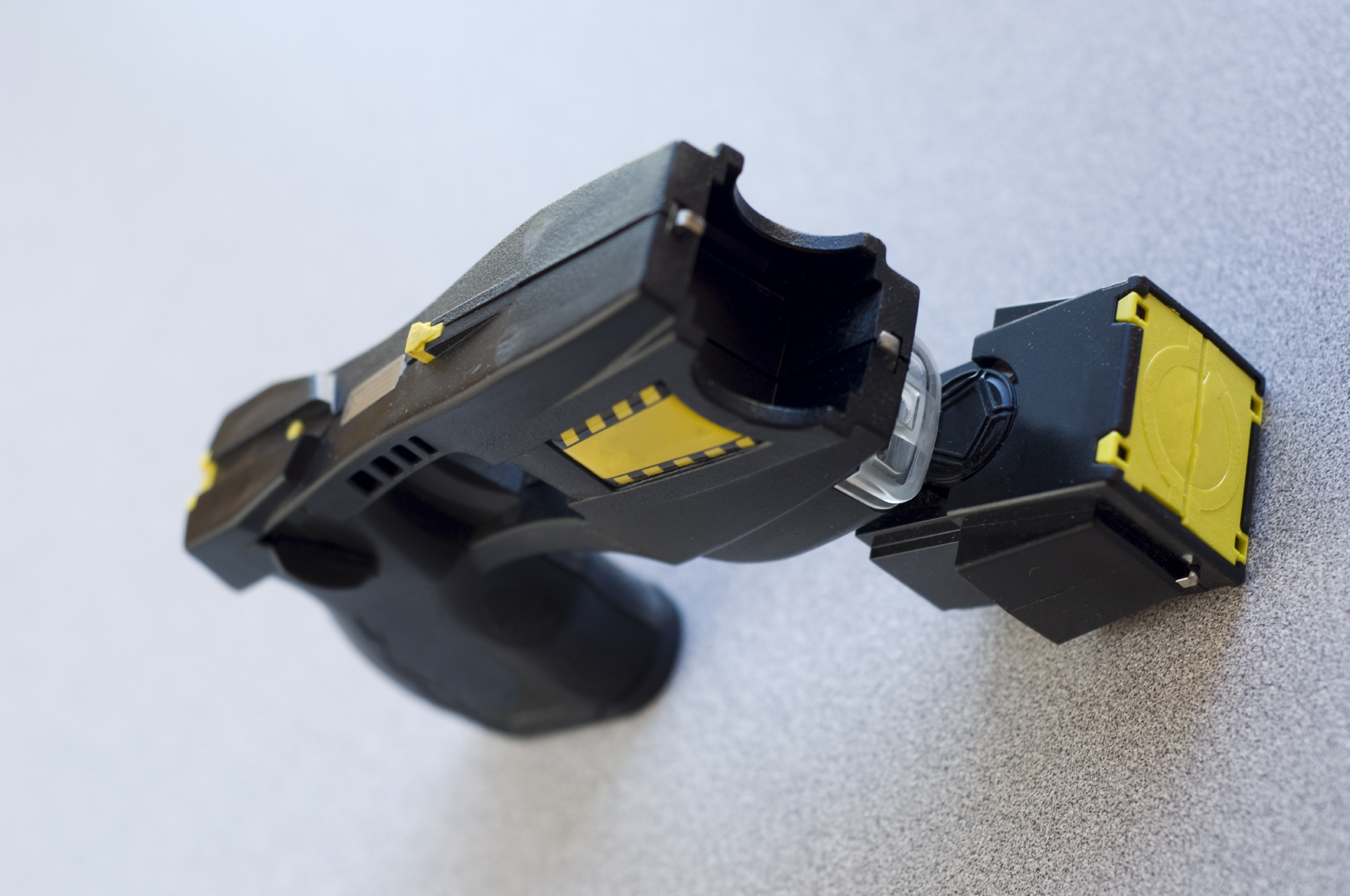Lack of plans to roll out Taser to officers a “disgrace”
IT is a disgrace that there are no current plans for a wider roll-out of Taser, the Police Federation conference has heard.
John Apter, chairman of Hampshire Police Federation, described Taser as an essential piece of equipment and said the service needs to rethink its strategy on the less-lethal weapon. In Essex the Federation are looking to treble the number of Tasers.
Mark Smith, Chairman of Essex Police Federation, said: “I’ve been working with our force and we’ve got an agreement that we are going to roll out more Taser. Unfortunately I don’t think it’s going to be done until after the summer period now because of the amount of work that summer brings with it, and also they’ve got to identify some money for the training.
“We’re not going to buy new equipment but we need some more money for the training. On assaults I think it’s good to hear that we’re now actually going to start seeing the true figures of assaults, not just the health and safety figures.”
Mr Apter said: “Taser is an essential piece of equipment – we lobbied hard with the Chief Constable and PCC and they agreed.
“We have 400 officers authorised to use it but I want more because it gives confidence and it prevents serious injury. I have evidence that it protects officers.
“To the NPCC – please rethink your position on Taser. To say it shouldn’t be rolled out further is a disgrace.
“Taser has proven itself time and again that with the right training and right use of force it is an essential piece of kit and must be rolled out to every officer who wants to use it.
“Chiefs around the country – it’s your decision. I accept its expensive but what is the cost of the safety of your officers?”
Mr Apter also said that Chief Constables should know the true level of violence against their officers, the Police Federation conference has heard.
He said he “doesn’t accept” that some forces find it too difficult to get data on the level of attacks on their officers.
Speaking about the Home Office’s decision to gather officer assault data from forces’ criminal records, he said “the only issue is that they are asking for it on a voluntary basis so it’s up to forces”.
“Some forces say they find it difficult to get that data but I don’t accept that. My message to Chief Constables is surely you want to know true level of violence against your staff on a daily basis?
“If we’re to deal with this issue we need to know how big it is. Believe me, it’s bigger than the 23,000 assaults on officers across England and Wales that we currently know about. When we put the true picture to judiciary they will start to sit up and listen.”
Mr Apter added that Hampshire have put together a new system of supporting officers who have been assaulted after the force discovered that officers who had suffered so-called “minor” assaults had “slipped through the net”.
He said: “If officers are really honest, they do lack confidence after they’ve been assaulted. When we drilled into the data we found that officers of so-called minor offences had been repeat victims.
“They had a lack of confidence in their own ability – they thought they were doing something wrong.
“In some cases it was those who hadn’t had a serious assault who went on long-term sick leave and had mental health issues. A little but of support goes a long way.”
Alex Marshall, CEO of the College of Policing, said the 7-point plan on officer assaults could “make a real difference” and called on all forces to adopt it.
He said: “It might be foreseeable that officers dealing with dangerous situations will be injured but it is not acceptable. What so impresses me is the way the 7-point plan takes a longstanding concern and offers it as a simple and straightforward plan.
“If we follow it in every force, it will make a real difference. Its beauty is its simplicity.”


Comments are closed.